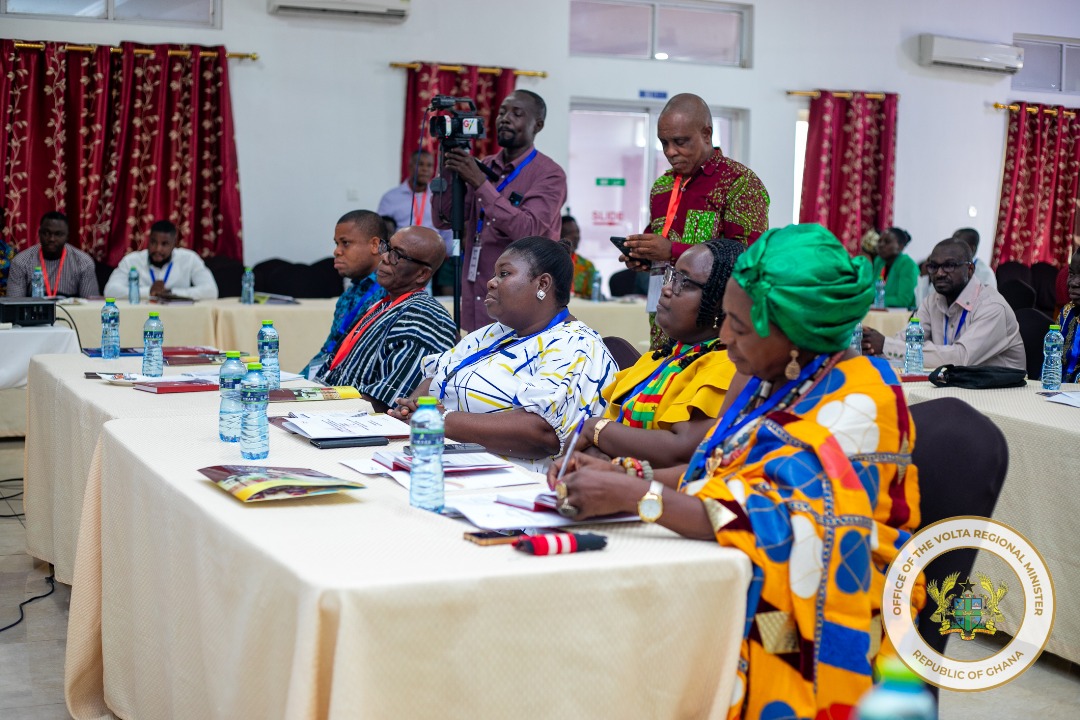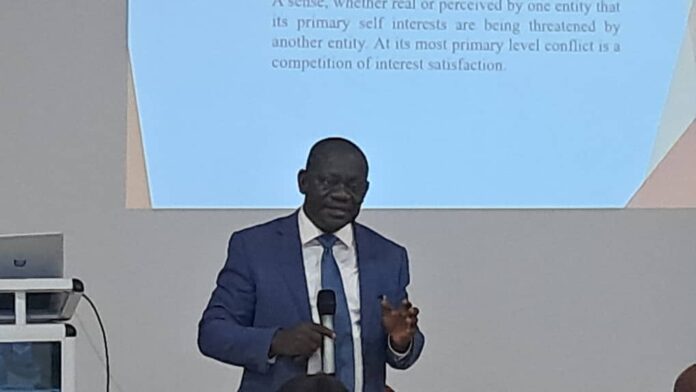Quiet diplomacy, not public shaming, is the most effective way to reform behaviour and preserve Ghana’s democratic stability, according to private legal practitioner and ADR expert, Esq. Alex Nartey.
Speaking at the opening of a three-day Alternative Dispute Resolution (ADR) training for members of the Volta and Oti Regional Peace Councils, Esq. Nartey challenged the popular perception that the Peace Council’s silence in public debates means inaction.
Instead, he said, it reflects a deliberate strategy to resolve issues respectfully and sustainably.
“When people go too far in political discourse, the Peace Council doesn’t rush to condemn them publicly. We invite them for dialogue, reason with them, and help them reflect on the consequences of their actions,” he explained.
“Responsible individuals often realise they could have done better — and they change. That is lasting reform.”
He cautioned that democracy thrives when all political actors, regardless of size, can freely contribute to the national conversation without suppression or intimidation.
“Partisan politics is healthy for democracy, but undermining other parties is not. Ghana needs more vibrant political voices — beyond the NDC and NPP — to enrich public debate and governance,” he said.
Esq. Nartey stressed that the Peace Council’s main empowerment needs are adequate logistics and highly skilled mediators capable of applying interest-based approaches to resolve crises.
He added that working quietly behind the scenes often achieves more than making public pronouncements that could harden divisions.

The GIZ-supported workshop is designed to build members’ capacity in ADR processes, enabling them to handle disputes in ways that maintain relationships and promote unity.
Day one of the training covered:
The legislative framework governing the Peace Council
The Council’s role as a neutral third party in conflicts
Guidelines on hate speech and other indecent expressions
Theories and principles of conflict
Participants expressed enthusiasm about the programme, promising to apply the lessons learned to foster peaceful dialogue and conflict resolution in their communities.
The training continues with hands-on mediation simulations and advanced techniques aimed at deepening the Councils’ capacity to defuse tensions and build lasting peace across the two regions.
Source: Ivy Priscilla Setordjie
READ ALSO:



